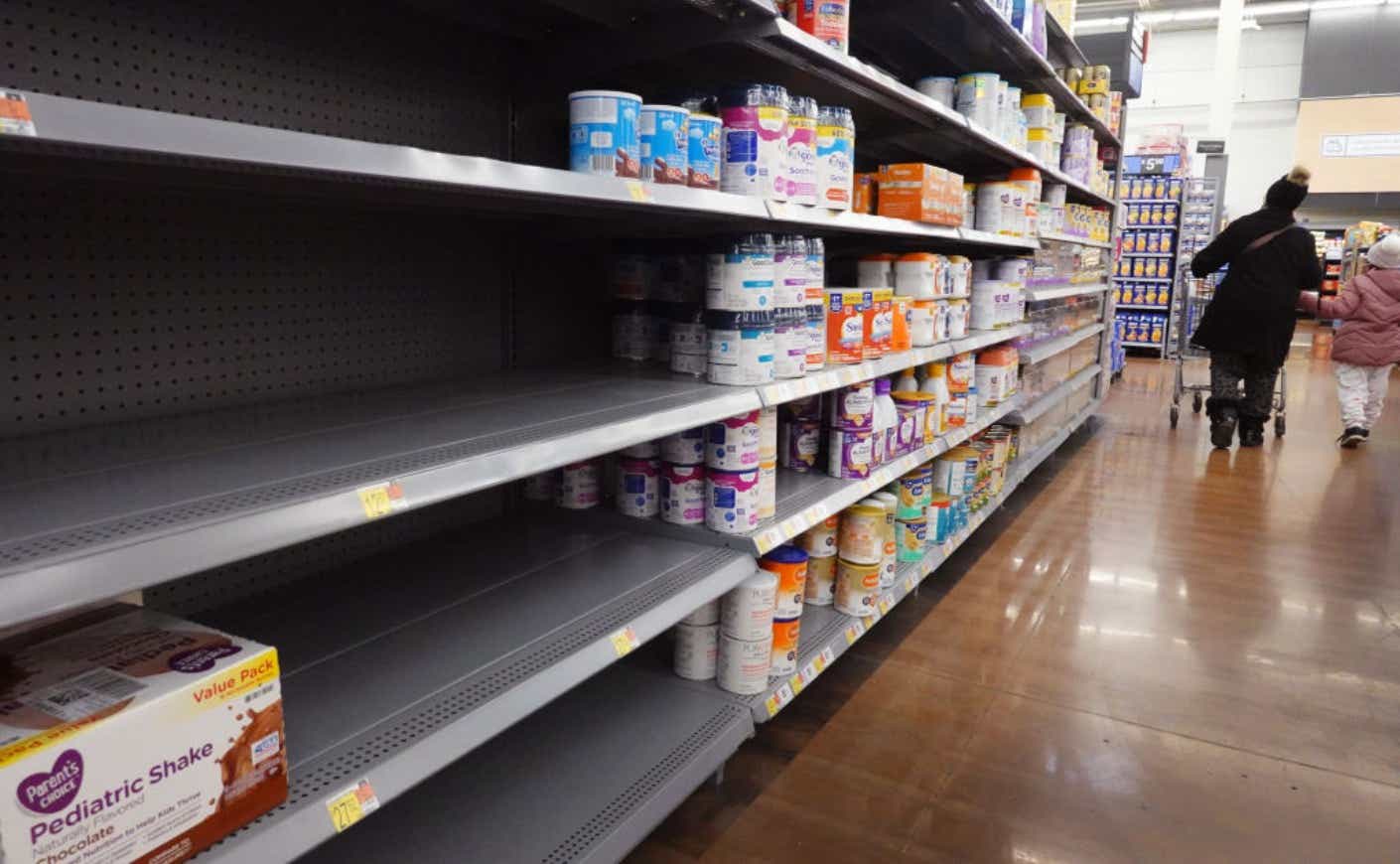A shortage of baby formula has parents across the country on edge. The essential product has been hard to find for months because of supply chain issues, but it came to a head in February when some of the top brands were recalled. Now, 40 percent of infant formulas are out of stock across the U.S.
Here’s a closer look at what led to the shortage and how some families are scrambling to feed their kids.
What’s behind the baby formula shortage?
Th shortfall began months ago. Manufacturers have been hit with inflation and supply chain problems, which has created a scarcity of some ingredients used to make formula, says Laura Modi, the CEO of Bobbie, an organic infant formula company she helped found in 2018.
The shortage intensified in February, when Abbott Nutrition voluntarily recalled three of its formulas after four babies became sick with bacterial infections after drinking the products. Two of those infants have died, according to the U.S. Food and Drug Administration. The recall includes certain lots of Similac, Alimentum, and EleCare formulas made at a facility in Sturgis, Michigan.
As fear of a shortage began to set in, people started panic-buying formula, which only made matters worse. And recently, major chains like Target and Walgreens have moved to limit purchases of the product.
“This is an unprecedented recall of an infant formula brand,” Modi says.
The other issue Modi sees is the “undoubtedly dangerous” market concentration of the infant formula industry. According to a 2011 USDA analysis, Abbott, Mead Johnson, and Gerber accounted for nearly all formula sales in the U.S.
“When one company owns 50 percent of the market, we have to be prepared for what happens when they go down,” she says.
And unlike other sectors, competing formula manufacturers don’t have the capacity to quickly increase production. “Some industries are very good at ramping up and ramping down,” Rudi Leuschner, an assistant professor of supply chain management at Rutgers Business School, told the New York Times. “You flip a switch and they can produce 10 time as much. Baby formula is not that type of a product.”
Another problem is that importing formula from other countries to fill the need isn't really an option because of how strictly the product is regulated here. Most of the formulas produced in Europe, for example, are illegal to purchase in the U.S. — not because they're unsafe, but due to issues related to labeling or other technicalities. One study found most formulas sold there meet FDA standards and may actually be better than products manufactured here, The Atlantic reports.
“The FDA has very strict and specific regulations, but those regulations are different from what’s in effect in Europe. And because of a lack of harmonization, we can’t just bring infant formula from another country,” Modi says. “That’s one of the bigger challenges we have.”
How is the shortage affecting families?
The shortage is driving many parents to ration food for their babies. Some are driving hours from home to scour supermarket shelves, while private sellers are marking up formula at outrageous rates, the New York Times reports. Others are attempting to make their own formula or watering down what they have, which experts have strongly warned against.
A mother in Connecticut told the Associated Press searching for hypoallergenic formula for her three-month-old has become almost like a full-time job. “You can travel everywhere — countless towns, stores, Amazon, online,” she said. “Honestly, it’s heartbreaking. Certain stores have absolutely nothing and now they’re limiting you. So what do you do?”
Modi says her company Bobbie, which has reached capacity, has become inundated with requests from desperate families. “Every day we receive dozens of letters and notes that are coming in from parents requesting to get off the waitlist.”









